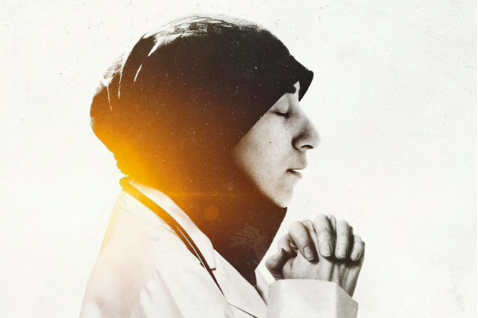ROSE RTEIMEH WRITES – In this time of an international public health crisis, with the emergence of COVID-19, it’s all too easy to feel hopeless while quarantined, but medical professionals don’t have that option.
The major problems now faced by healthcare systems and professionals are similar to those of war-torn nations and transcend borders-a shortage of supplies, insufficient funding, prolonged care for patients.
Imagine running an underground health clinic in war-torn Syria. Dr. Amani Ballour is the first woman in her region to run a hospital in rebel occupied Syria. Her command and effectiveness amidst chaos are the subject of an Oscar-nominated documentary, “The Cave,” which premiered in 2019.
Ballour displays the harsh realities of running a clinic in an atmosphere of war planes. bombs. and wounded children. Debris from buildings fills the air. With increasing violence and a rising death toll, Ballour grappled with the guilt of not saving every child… even though to do so would have been impossible.
Such inner conflicts shed light on her humanity at a time and place in which one might assume she would become desensitized to horror and violence. Instead, she expresses immense sadness and guilt over the loss of lives due to an insufficient allocation of funds. The documentary exposes how medical nonprofits funded the clinic during a time in which supplies were scarce due to government forces that cut them off.
The underground hospital featured in the documentary is in Eastern Ghouta, which Ballour managed for three years – until around 2018, when Ghouta fell into the hands of the Syrians, forcing Ballour and her staff to evacuate immediately.
Though no longer empowered to aid civilians, Ballour has since been touring internationally to raise awareness about violence and suffering in the northern Syrian province of Idlib.
Ballour’s passion to continue advocating for victims of war is admirable. Moreover, her story echoes the complications confronting all medical professionals during times of crisis, when forced to work both for and against systems that sometimes make it difficult to give victims effective care.
Let this be a reminder to us all to feel more compassion for those who are sick and those who serve them. But more importantly, let it be a call for action.
What link can you help fix in our troubled worldwide healthcare systems? Have you exercised your own humanity in situations that don’t personally affect you?
Perhaps doing these things-feeling compassion and acting upon it-rather than lashing out at any one nation that may not have enough tests, or judging refugees seeking asylum in other countries – can be a start.

